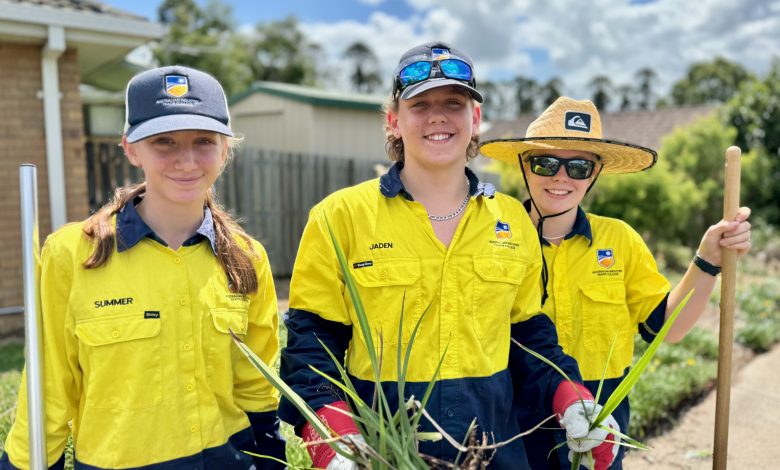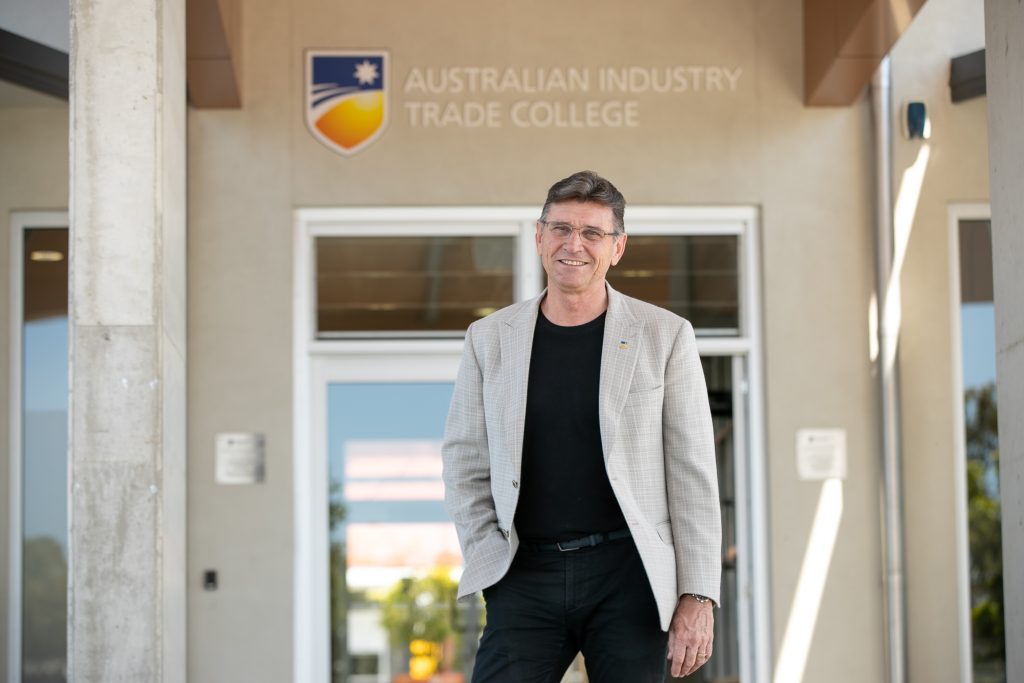
Not all students thrive in the traditional classroom, and not every young person feels at ease in the typical, mainstream schooling model.
The Australian Industry Trade College (AITC) was established with these students in mind and aims to help them find their place at school, and beyond.
Read the latest print edition of School News HERE
First opening its doors in 2006, the AITC was originally a Registered Training Organisation, the Australian Trade College, before transitioning to a school in 2008.
Then, in 2010, the school rebranded to the AITC. 110 young people were congratulated on their graduation that year, and left the school empowered to pursue their pathway in industry.
CEO and Executive Principal Mark Hands has been with the AITC since the beginning, originally serving as Principal at the school’s Gold Coast campus. He said a lot of thought was put into what the school needed to be, and the role it could play in the education and employment landscape.
“We spoke to educators and to industry, and saw that the options available to technically talented, bright minded young people were diminishing. Thinking seemed to be narrow around what constitutes ‘clever’ and the ‘best’ path to success,” Mr Hands said.
“We are unlike any other Queensland school, and proudly so. We want to elevate and enhance the value and reputation of industry careers.”

Enrolling students from Years 10 to 12, students at the AITC spend two-thirds of their year outside the classroom, immersed in industry. This time allows them to learn the skills of their trade, as well as practical aspects of working in the industry. Access to industry professionals on an ongoing basis provides invaluable learning, that cannot be replicated in a classroom setting.
During Education Block, students are back on their school campus. Here they learn from the AITC curriculum, which, Mr Hands said, is informed and contextualised by various industry sectors in teaching, learning and assessment.
“All theory components are delivered in a practical, pedagogical method, with content linked to the College’s values,” he said.
Students in Year 10 complete core subjects English, Maths, History, Science, and Health and Physical Education, with electives including Geography, Civics and Citizenship, Design and Technologies, and Work Studies.
In Years 11 and 12, students study Literacy, Numeracy, and Vocational Education. This will see successful students graduate with Certificate qualifications, making them job-ready as soon as they finish school. For many, the relationship building with people in the industry while they are still at school, gives them a leg up to finding a job, apprenticeship, or pursuing further study.
Through all subject areas, the learning program at the AITC focusses on employability skills, work experience, community service and character development. All learning links to preparing students for a job in industry, and uses real-world examples to inform and extend learning. Students are supported to see the practical applications of their learning, so they become interested in and engaged with content in a way they may not have in the traditional classroom.

Mr Hands said the model is all about giving technically talented students the chance to shine. “In some cases, our students may not have found their place in a traditional education setting, and may not have thought that they were intelligent. Once they have found their place at the AITC, these students are absolutely soaring.”
The first step on each young person’s journey at the AITC is the Rookie’s Challenge. This helps students prepare for the world of work, while ensuring they establish a connection to the school, and to their classmates. With students spending much of their time off-campus and in industry, fostering a sense of belonging is important.
“We’ve always told our young people that character counts and mindset matters,” Mr Hands said.
The program has three important phases, and allows young people to discover their pathway forward. The first phase is Be Prepared, a two-day orientation at the student’s chosen campus. This helps to familiarise students with their campus, and lets them meet some of their new school mates.
Second, is the Rookie Challenge, a three-to-five-day adventure learning experience at Emu Gully Adventure Education. New entrants must complete the challenge as part of their induction to the AITC. This experience will help students develop their decision-making skills, independence, and personal and social responsibility.
Be Ready Training is the final step in the Rookies program, and is completed during the student’s first term at the college, within their industry weeks. Young people experience a range of industry activities designed to expand their view of the world of work. Activities are planned to prepare students for their first work experience, and will include workplace visits, community service opportunities, white card safety card, TAFE training, and careers advice.

Now in its sixteenth year, the AITC has about 1200 students across six campuses. A comprehensive list of trade apprenticeships are available for study, including baking, electrical, landscape tradesperson, arborist and more. Not just for builders, plumbers and electricians, then, any student looking for an alternative to the mainstream schooling model can find their place at the AITC.
Currently in a growth phase, the AITC has a clear vision for the future. “In 2018, we launched our 10-year strategic plan with three distinct phases identified: get fitter (2018-2020), measured growth (2021-2024) and scale up (2025-2028). Beyond building capacity and expanding our reach, phase one saw us invest in clearly defining our identity,” Mr Hands said. “The Strategic Plan shares how we will bring our purpose to life, and captures our intent, and the actions we will take to make an impact in the world.”
Mr Hands, though, said the journey has not always been easy. “The AITC had to overcome a lot of challenges, in the early days, and we often questioned if it would remain open,” he said. “But now, we are thriving.”
The approach to learning taken by the AITC demonstrates that alternative education pathways are a sensible option for many students.
“Our young people when they learn in a hands-on way, can see that they are technically talented. Helping these students reach their potential is why the AITC was founded, and watching them thrive is deeply rewarding.







